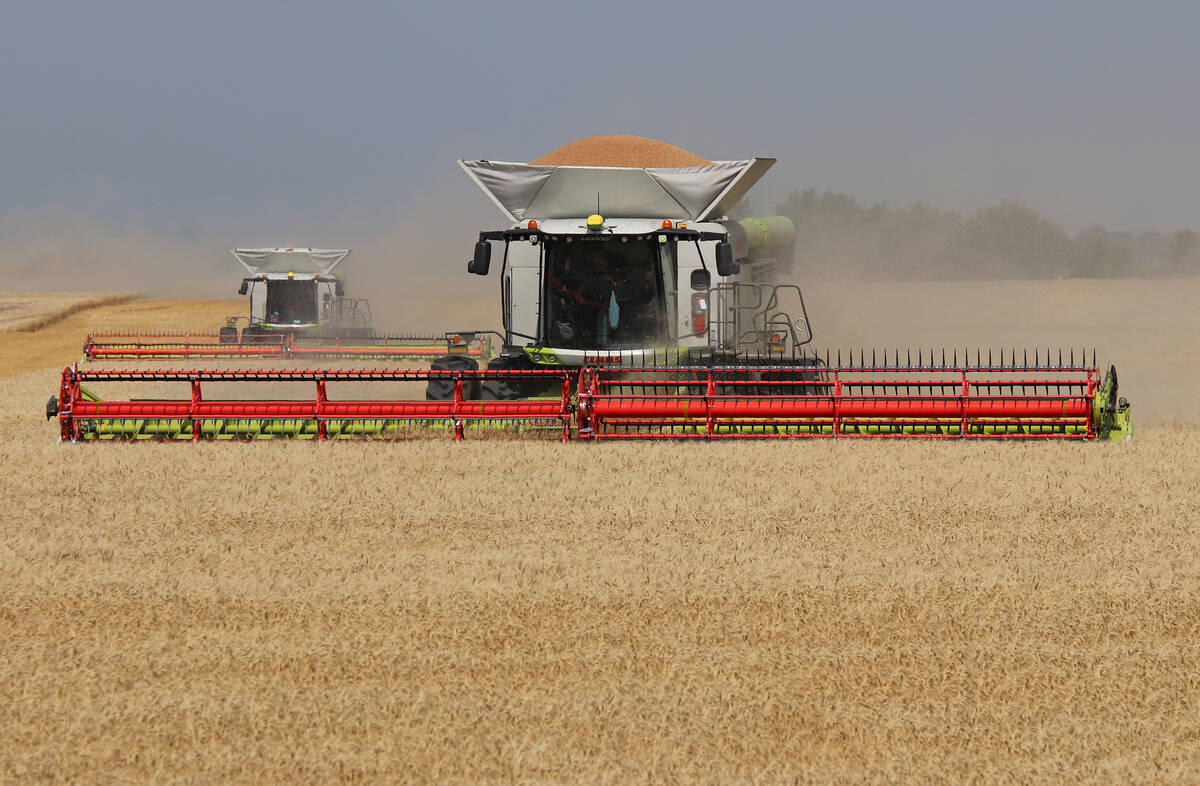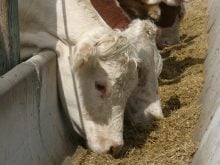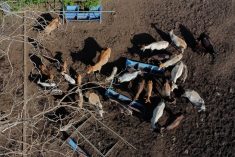TORONTO – Canada’s agriculture ministers have acknowledged that existing safety net programs need fixing, but they are not ready to do anything about it just yet.
Despite pressure from farm leaders to make immediate changes, ministers decided Feb. 5 they will continue considering and consulting and return to the issue when they next gather in Saskatoon in July.
Federal minister Gerry Ritz suggested part of the reason is that agriculture ministers do not know if their governments will approve changes that could cost more money.
Read Also

China’s grain imports have slumped big-time
China purchased just over 20 million tonnes of wheat, corn, barley and sorghum last year, that is well below the 60 million tonnes purchased in 2021-22.
“We want to assess them (programs) on farmgate friendliness,” he told a news conference following the one-day agriculture ministers’ meeting in Toronto.
”We’ve always said these programs need to be bankable and predictable. They also have to be bankable and predictable for our Treasury Board and our finance departments, so I’m not going to commit to any specifics at this point.”
He said agriculture ministers will have to return to their cabinets to see where and much they can move.
Liberal agriculture critic Wayne Easter scoffed at the comment.
“Are finance ministers making agriculture policy now?”
Provincial ministers complained at the meeting that AgriStability is not triggering money to their slumping hog and cattle sectors because of its reliance on historic margins as a trigger.
Saskatchewan minister Bob Bjornerud said he was one who raised it.
“In my own province, I’ll use the hog side,” he said in an interview.
“The program was designed to assume cycles but this (downturn) has been going on for years and the program just doesn’t work.”
Rookie Ontario minister Carol Mitchell, under farmer pressure to win federal financial support for the province’s cost-of-production-based Risk Management Program, indicated Bjornerud was not the only critic.
She said the morning was dominated by discussions on risk management.
“My provincial counterparts certainly raised their concerns and minister Ritz heard those concerns. There is a process moving forward.”
Farm leaders who had been calling for a quick decision to change AgriStability rules to help trigger more payments were dismayed. They insisted governments must act now and not wait for the next generation of farm programs to correct obvious flaws in the current programs.
“I am very disappointed,” Canadian Federation of Agriculture president Laurent Pellerin said after listening to the ministers.
“There are some things they can do, should have done today, yesterday. Planning for the longer term is fine but farmers live in the short term and for many, these programs are not working.”
Pellerin said the lack of action is difficult to understand because ministers have recognized the flaws in the margin-based program model. They have been evident in the past decade of programming, he added.
“Using past margins to trigger current payments does not work when you have years of low or negative margins,” Pellerin said.
“Surely they can work on both short and long term, walk and chew gum at the same time.”
Ontario Pork director Curtiss Littlejohn complained that governments abandoned the hog industry by refusing to fix flaws they know exist.
“They are standing back and watching an industry slide.”
Ritz said the critics should realize progress on policy reform is “always incremental” and ministers are working in farmer interests.
He suggested the farm plight should not be exaggerated.
“We’re constantly bombarded with hypothetical bad news situations and stories,” he said.
“Having said that, farmers are a very resilient group. There will be a crop go in the ground, there will be calves born, there will be pigs raised and chickens and eggs gathered. That will continue.”














